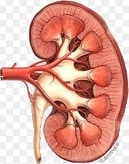
London’s water contains high levels of antibiotic-resistant genes, UCL research reveals
pharmafile | July 26, 2019 | News story | Medical Communications, Research and Development | London, UCL, UK, antibiotic resistance, pharma
Research from University College London has warned that freshwater sources in the English capital of London contain high levels of antibiotic-resistant genes.
These genes, excreted in human and animal waste after antibiotic use, can provide bacteria with resistance to common antibiotics including penicillin, erythromycin and tetracycline.
The River Thames was found to have the highest levels of the genes given its status as an ultimate destination for much of the city’s wastewater treatment operations, with other water sources including the Regent’s Canal, Regent’s Park Pond and the Serpentine also confirmed to be contaminated. Within these sources, antibiotic-resistant bacteria is provided with a prime environment to multiply and spread their resistance.
The team at UCL measured the level of antibiotic-resistant genes per litre of water in the various London water systems using a DNA-based methodology.
“This shows that more research is needed into the efficiency of different water treatment methods for antibiotic removal, as none of the treatments currently used were designed to incorporate this,” remarked UCL Civil, Environment and Geomatic Engineering’s Project Lead Dr Lena Ciric. “This is particularly important in the case of water bodies into which we discharge our treated wastewater, which currently still contains antibiotics. It is also important to look into the levels of antibiotics and resistant bacteria in our drinking water sources.”
While unconfirmed, it is theorised that, because there is currently no legislation in place to support the removal of antibiotics or resistant genes from water sources, these genes could be present in London’s drinking water, though this would require testing.
The team is now working on removing the resistant bacteria and antibiotics in water taken from London’s water sources using slow sand filtration, a method used around the world to filter drinking water, experimenting with varying proportions of sand, activated carbon and different flow rates.
Matt Fellows
Related Content

FDA approves IMIDEX’s AI-powered device VisiRad XR
The technological pharmaceutical company IMIDEX has been granted clearance from the US Food and Drug …

Artiva Biotherapeutics announces FDA clearance of IND for AlloNK and Rituximab combo
On 16 August 2023, the US Food and Drug Administration (FDA) officially cleared Artiva Biotherapeutics’ …

Novartis acquires Chinook Therapeutics for $3.5bn
Swiss pharmaceutical company Novartis has entered into an agreement and plan of merger with US-based …








